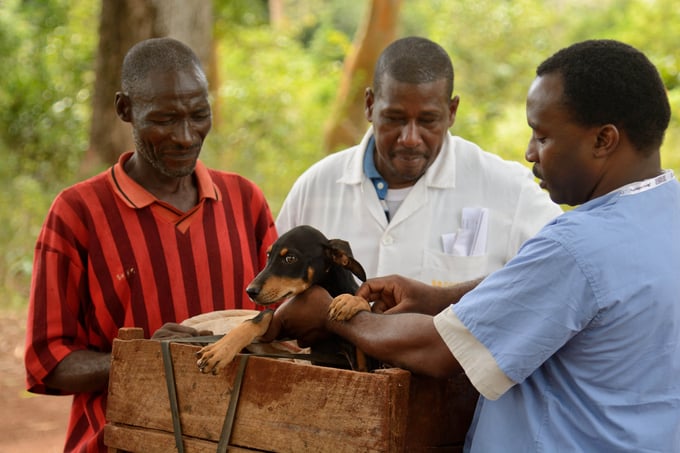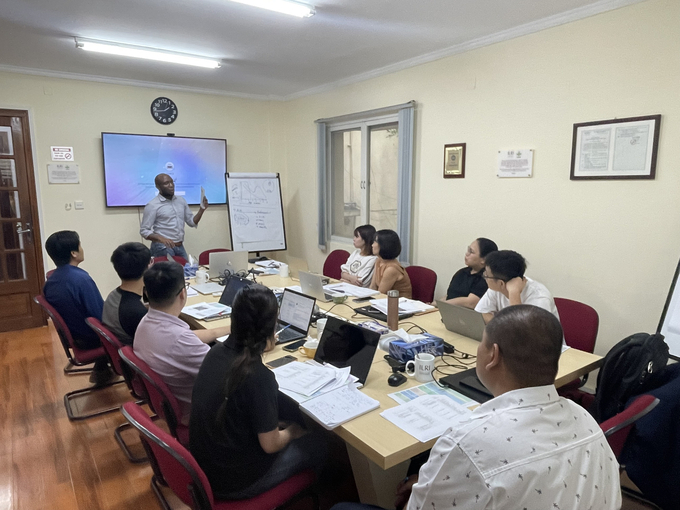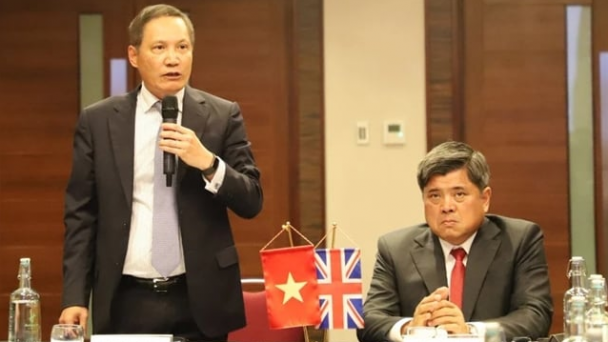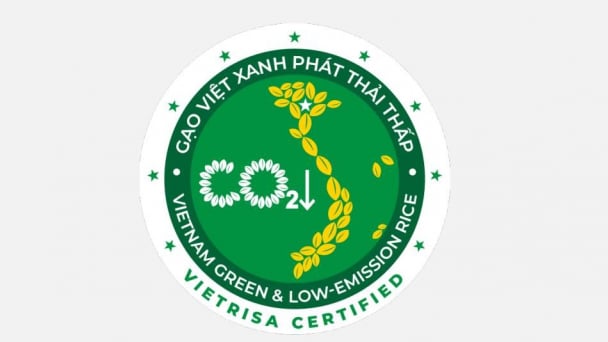May 16, 2025 | 09:45 GMT +7
May 16, 2025 | 09:45 GMT +7
Hotline: 0913.378.918
May 16, 2025 | 09:45 GMT +7
Hotline: 0913.378.918

Dr. Dishon Muloi, ILRI expert on epidemiology and antibiotic resistance. Photo: Tung Dinh.
Speaking at the One Health Scientific Conference under the theme “International One Health Practices and Lessons Learned for Vietnam,” Dr. Muloi highlighted the similarities between Kenya and Vietnam in confronting zoonotic diseases.
Recognizing that zoonoses, antimicrobial resistance, and food safety are complex issues that pose significant threats to global health security, socio-economic development, and food safety, Kenya established the One Health Platform – the Zoonosis Disease Unit (ZDU).
Founded in 2012 through a Memorandum of Understanding (MoU) between the Ministry of Health and the Department of Veterinary Services, ZDU includes medical and veterinary epidemiologists and other experts as needed. This initiative originated from the establishment of the National Influenza Taskforce (NIT) in response to the H5N1 threat in 2005, which later evolved into the Zoonosis Technical Working Group (ZTWG). The foundation of ZDU was formalized by 2011 with the signing of the MoU.
Dr. Muloi noted that Kenya’s One Health approach integrates agriculture, health, and environmental sectors, addressing the human, animal, and ecological interfaces.
Two permanent ZDU units, the Director of Veterinary Services (MALF) and the Director of Medical Services (MoH), lead these efforts. Through periodic missions to county levels, equivalent to Vietnam’s district level, the Zoonosis Technical Working Group (ZTWG) and One Health Committee implement preventive measures and rapid response protocols.

Kenyan working groups check the health of animals. Photo: WAP.
During special circumstances like the COVID-19 pandemic, ZDU mobilizes additional experts, including wildlife ecologists, zoologists, and representatives from the National Environment Management Authority (NEMA), to support ongoing efforts.
Recently, Kenya launched a One Health Strategic Plan for 2021-2025, focusing on strengthening One Health implementation at national and county levels, improving surveillance, response, and control of priority zoonotic diseases, and promoting applied research.
Kenya categorizes zoonotic diseases based on factors like severity in humans and animals, epidemic potential, disease burden, and socio-economic impacts.
This categorization includes anthrax, human trypanosomiasis, rabies, brucellosis, and Rift Valley Fever (RVF), which was first detected in 1912 and recurs every 5-15 years, often following flooding that increases vector populations.

Training session on antibiotic resistance data analysis at ILRI Vietnam office. Photo: ILRI.
To mitigate such outbreaks, Kenya has established a framework at the county level that includes disease surveillance coordinators, veterinary officers, and regional wildlife coordinators who collaborate on outbreak investigations, data sharing, and joint risk assessments.
“We aim to support research and data collection on zoonotic diseases across human, animal, and environmental interfaces to enable evidence-based decision-making,” Dr. Muloi emphasized.
In response to disease outbreaks, veterinary officers coordinate with health officials, conduct regional training, and develop specific response plans.
Despite the advancements at the county level, Dr. Muloi acknowledged challenges, including resource limitations, sector-specific financial and technical structures, decentralized governance, insufficient data on One Health drivers, and limited awareness among policymakers. He also noted the need for a stronger policy framework and comprehensive cost-benefit analyses of One Health.
“In Africa, diseases like malaria and HIV pose substantial challenges, often stretching One Health resources and diverting attention,” Dr. Muloi concluded.
Translated by Linh Linh

(VAN) Veterinary training should focus on quality, not just quantity. Veterinarians also need more options to pursue specialized training.

(VAN) The veterinary industry needs to be viewed objectively and further invested in to properly demonstrate its role and importance in the new context.

(VAN) The number of veterinarians graduating each year is not enough to meet actual needs, hence a difficult problem for the growing livestock industry.

(VAN) The strategic partnership between Cambodia, the Philippines, Vietnam, and CGIAR ensures that innovative solutions effectively address national priorities for food system development.

(VAN) This was affirmed by the UK Minister of State at the Department for Environment, Food and Rural Affairs during a working session with Deputy Minister Tran Thanh Nam on May 13.

(VAN) On May 13, the Ministry of Agriculture and Environment, in coordination with the Embassy of Vietnam in the United Kingdom, organized a seminar titled 'Connecting trade in Vietnam-UK agricultural, forestry, and fishery products'.

(VAN) The launch of the Vietnam green and low-emission rice brand is a positive signal for both businesses and farmers, marking readiness to reach new heights in the global market.